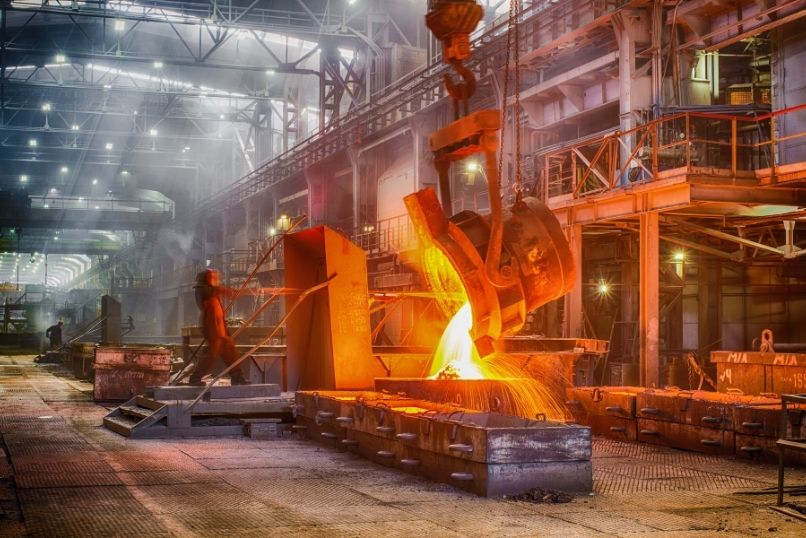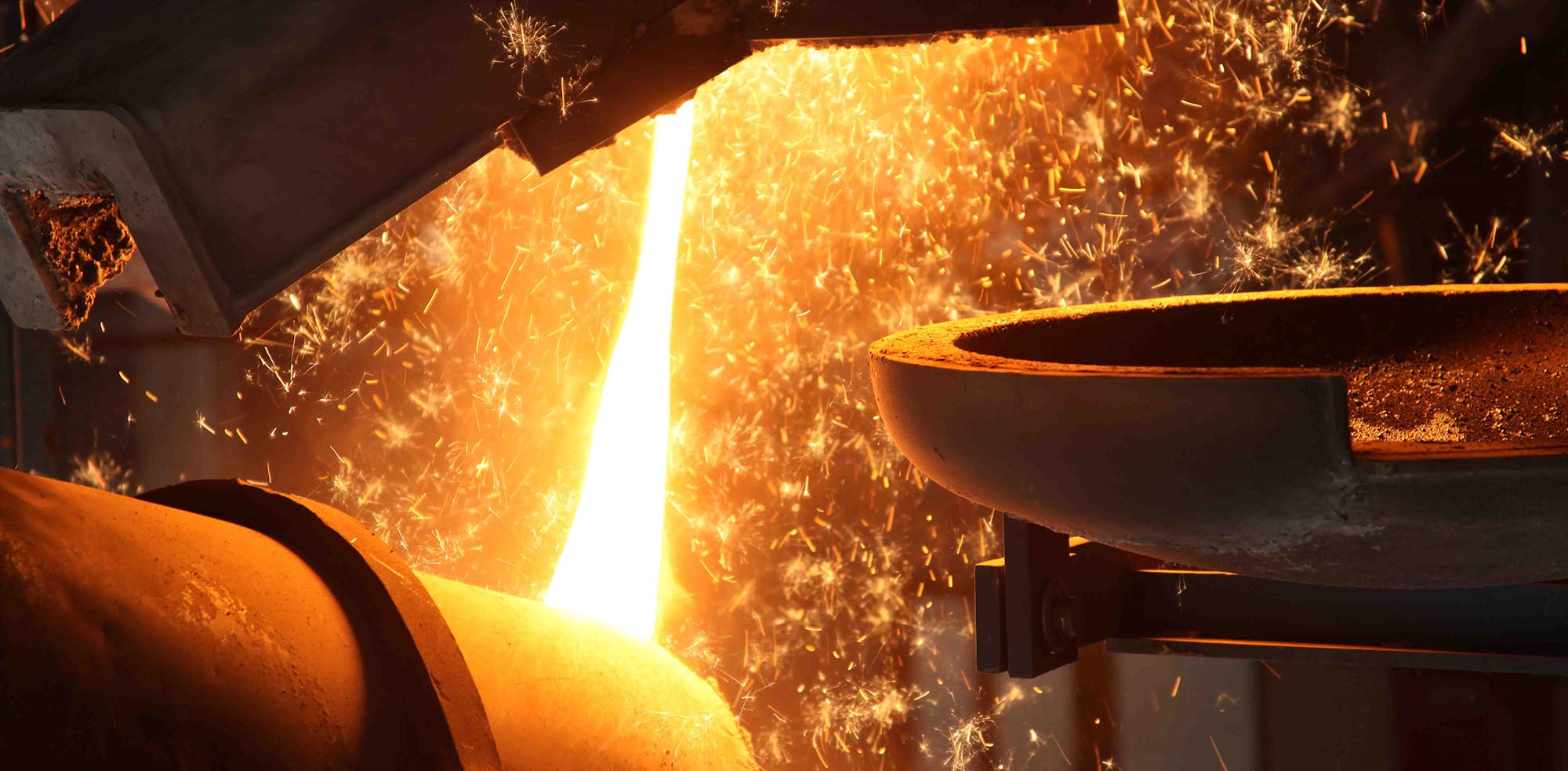Common challenges in Aluminum Casting with proven fixes
Wiki Article
A Deep Dive Into Steel Foundries: Key Services and Their Effect on Production
Metal foundries are essential to contemporary manufacturing, providing important solutions that shape the manufacturing landscape. They specialize in numerous casting processes, guaranteeing precision and quality in metal elements. The evolution of innovation and sustainable methods has further influenced their operations. As sectors increasingly count on these shops, recognizing their essential services and the effects for manufacturing efficiency comes to be important. What challenges and advancements lie in advance for this important field?Recognizing Steel Casting Procedures
Metal spreading procedures change fluid steel right into solid things via different methods, each tailored to particular applications and materials. Amongst one of the most typical approaches are sand casting, financial investment casting, and die casting, each offering unique benefits. Sand spreading utilizes a mold and mildew constructed from sand, making it possible for the production of huge components at a reasonably inexpensive. Financial investment casting, on the other hand, entails producing a wax pattern that is covered in ceramic, producing intricate and highly thorough forms. Die casting employs high pressure to require liquified metal right into a mold and mildew, which is optimal for mass production of small, exact elements. These procedures permit for a vast array of steels to be made use of, including aluminum, steel, and bronze, accommodating diverse industrial needs. The option of an ideal spreading strategy depends upon variables such as required resistances, production quantity, and product residential properties, influencing the total efficiency and efficiency of the end products.The Value of Accuracy Spreading
Precision spreading plays a necessary function in generating parts that demand high accuracy and elaborate information. This method, typically described as investment casting, enables intricate geometries and limited tolerances, making it important in industries such as aerospace, vehicle, and medical devices. By utilizing wax patterns that are covered with a ceramic covering, precision spreading enables the production of components with smooth surfaces and minimal finishing needs.
Alloy Development and Material Option
In the domain name of steel factories, alloy growth and material selection are vital elements affecting the efficiency and durability of cast parts. The selection of alloy straight impacts mechanical residential or commercial properties, such as ductility, stamina, and corrosion resistance, essential for meeting certain application demands. Factories often participate in substantial research and testing to enhance alloy structures, tailoring them to the special needs of numerous industries, including auto, aerospace, and construction.Product choice likewise entails examining aspects like manufacturability, expense, and accessibility, ensuring that the selected alloy lines up with manufacturing capacities and budget plan restraints. Advanced simulation tools and analytical techniques are employed to forecast the actions of various alloys under differing conditions, providing beneficial insights for designers. Eventually, efficient alloy advancement and material choice enable factories to produce high-quality components that boost functional efficiency and dependability in their designated applications.
Ingenious Molding Strategies
Changing the manufacturing process, ingenious molding methods play a crucial duty in boosting the effectiveness and top quality of cast components in steel shops. Techniques such as 3D printing and vacuum cleaner molding have become game changers, permitting intricate layouts and decreased lead times. These techniques allow factories to create molds with intricate geometries that typical techniques usually have a hard time to achieve.Additionally, the use of sophisticated products for mold and mildews, such as composite resins, improves resilience and lowers wear, causing longer production runs. Fast prototyping further permits for fast models, facilitating faster growth cycles and allowing manufacturers to react even more quickly to market demands.
Automation in molding procedures streamlines procedures, decreasing human mistake and increasing throughput. By integrating these innovative approaches, steel shops can maximize their production abilities, eventually resulting in greater high quality spreadings and enhanced general efficiency in the affordable manufacturing landscape.
Quality Control in Metal Foundries
Quality control in steel factories is crucial for ensuring the integrity and efficiency of cast products. It incorporates different assessment methods and standards, as well as problem discovery approaches to recognize possible problems early in the production procedure. Durable top quality assurance procedures are vital for preserving consistency and conference sector requirements.Assessment Techniques and Requirements
Assuring the integrity of metal castings calls for extensive inspection techniques and adherence to developed criteria. Steel factories carry out various inspection methods to examine the top quality of cast products, consisting of visual inspections, dimensional checks, and non-destructive screening (NDT) These strategies help to determine possible flaws early in the manufacturing process. Criteria such as ASTM and ISO supply standards for acceptable high quality levels and screening treatments, ensuring that shops keep consistent high quality across their production lines. Conformity with these standards not only improves product integrity but likewise promotes trust fund among customers. By prioritizing assessment methods, metal foundries can mitigate dangers connected with issues and warranty that their spreadings fulfill client specifications and industry needs.Flaw Detection Methods
Reliable problem discovery approaches are integral to maintaining high standards in metal factories. These approaches incorporate a variety of strategies focused on recognizing blemishes in spreadings before they are processed better. Typical strategies include aesthetic examination, which relies upon the trained eye of inspectors to spot surface area imperfections, and non-destructive screening (NDT) techniques such as ultrasonic testing and radiography, which expose interior flaws without damaging the product. Furthermore, automated systems utilizing artificial intelligence and artificial intelligence are progressively used to assess information and recognize abnormalities. Each approach plays a vital role in making certain the Click Here honesty of the end product, reducing waste, and enhancing overall manufacturing performance. By carrying out robust issue discovery processes, shops can promote their credibility for quality.here are the findings
Quality Control Processes
In steel shops, a detailed quality control procedure is crucial for producing high-performing and reputable castings. This process includes various phases, consisting of resources assessment, in-process tracking, and final product examination. By executing standard treatments, shops can methodically recognize and correct flaws before they intensify right into costly issues. Advanced methods, such as non-destructive testing and metallurgical evaluation, are used to assess the honesty of castings. Documents and traceability are critical parts, ensuring that each action of manufacturing fulfills strict high quality standards. Training employees in quality assurance techniques even more improves the effectiveness of these processes. Ultimately, a robust quality control framework not only boosts functional effectiveness however also enhances consumer trust fund and contentment in the factory's output.The Function of Innovation in Shop Workflow
Innovation revolutionizes foundry procedures by improving safety, efficiency, and precision. Automation plays an essential duty, streamlining processes such as mold production and steel pouring, consequently minimizing labor prices and lessening human mistake. Advanced computer-aided layout (CAD) software program allows exact modeling of parts, promoting quicker changes and models throughout production.The combination of robotics in tasks like material handling and ending up processes boosts productivity and guarantees consistent quality. Real-time monitoring systems and information analytics offer useful understandings into functional efficiency, enabling prompt treatments and maintenance, which eventually prolongs devices life expectancy

The adoption of 3D printing modern technology additionally makes it possible for rapid prototyping and personalized services, substantially decreasing lead times. In addition, sophisticated products modern technology enhances the residential or commercial properties of alloys, boosting casting performance. To sum up, technological innovations are important in optimizing factory operations, making it possible for suppliers to fulfill the enhancing needs for quality and performance in the competitive metal sector.
Environmental Factors To Consider in Metal Casting
Environmental factors to consider in steel casting play a significant function in forming market practices. Efficient waste monitoring, progressed discharge control innovations, and using lasting products are necessary for decreasing the environmental footprint of foundries. Addressing these elements is important for promoting a much more sustainable future in steel production.
Waste Administration Practices
Effective waste administration practices are crucial in the metal spreading market to reduce environmental impacts. Metal Foundry. Factories produce numerous types of waste, including steel scrap, chemical, and sand residues. Executing reusing programs enables the repurposing of steel scrap, lowering the demand for virgin materials and minimizing land fill contributions. Additionally, shops usually make use of sand recovery procedures, which reuse and recover sand numerous times, thereby decreasing waste generation. Correct disposal techniques for dangerous products, such as binding solvents and agents, are critical to avoid soil and water contamination. Staff member training on waste partition and reduction strategies can boost total performance and sustainability. Through these methods, metal shops can noticeably reduce their eco-friendly footprint while maintaining production performanceEmission Control Technologies
As the steel casting industry evolves, the implementation of innovative exhaust control innovations comes to be increasingly vital for reducing dangerous toxins launched throughout production procedures. These modern technologies incorporate different techniques, including electrostatic precipitators, scrubbers, and catalytic converters, which successfully catch and reduce the effects of discharges before they enter the atmosphere. By integrating such systems, shops can considerably decrease particulate matter, unstable natural substances, and various other unsafe exhausts. Furthermore, compliance with rigorous ecological policies not only mitigates eco-friendly effect but likewise improves the industry's you can try here reputation and functional effectiveness. The fostering of these innovations reflects a dedication to lasting techniques, ensuring that steel spreading procedures can meet the expanding need while prioritizing ecological health and wellness and safety.Sustainable Products Usage
Lasting products use in steel casting plays a necessary function in minimizing the market's ecological footprint. Shops are significantly taking on recycled steels, which substantially minimize the need for virgin resources and reduced power intake during the manufacturing procedure. Additionally, the usage of green binders and additives improves the sustainability of casting procedures by minimizing harmful exhausts and waste. Developments in material science likewise allow for the advancement of naturally degradable options that do not endanger item high quality. In addition, shops are implementing life-cycle assessments to evaluate the ecological influence of materials throughout their life-span, promoting more accountable sourcing and usage. Overall, these methods add to a more ecologically conscious and lasting steel spreading sector, aligning with international efforts to decrease carbon footprints.Often Asked Inquiries
What Are the Main Types of Metal Utilized in Factories?
Factories mainly use metals such as iron, light weight aluminum, copper, and magnesium. These products are picked for their one-of-a-kind properties, which affect the casting process and the efficiency characteristics of the end products produced.How Do Factories Guarantee Worker Safety During Procedures?
Shops assure worker security with strenuous training, appropriate equipment, ventilation systems, and adherence to security laws. Regular inspections, personal protective equipment, and emergency situation procedures better boost a secure functioning setting for employees participated in metal manufacturing.What Is the Normal Preparation for Casting Manufacturing?
The common preparation for spreading manufacturing differs, typically varying from a couple of weeks to numerous months. Aspects influencing this timeline consist of intricacy of the design, product accessibility, and the factory's production capability and organizing.Exactly How Do Foundries Take Care Of Waste and Recycling Processes?
Factories manage waste and recycling by applying procedures such as metal recovery, sand recycling, and proper disposal of hazardous products, consequently reducing ecological influence and promoting sustainability in their operations while sticking to governing standards.What Industries The Majority Of Typically Make Use Of Steel Foundry Solutions?
Steel foundry services are primarily used in markets such as auto, equipment, building and construction, and aerospace production. These fields rely upon factories for producing cast steel parts important for various applications and item growth.Metal foundries are essential to modern-day production, supplying important services that form the manufacturing landscape. Metal spreading procedures transform liquid steel into solid items via various methods, each tailored to details applications and products. As technology advancements, the value of precision spreading proceeds to expand, driving advancement and effectiveness in steel foundry operations. Revolutionizing the manufacturing process, cutting-edge molding techniques play a pivotal function in improving the effectiveness and high quality of cast parts in steel shops. In steel shops, an extensive high quality guarantee process is important for producing trustworthy and high-performing castings.
Report this wiki page